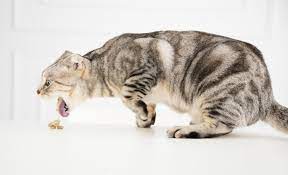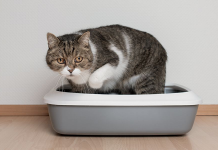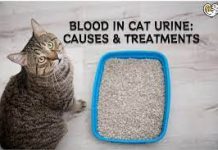Cat Throwing Up Food: Common Causes and Helpful Tips
Cats are known for their occasional hairballs and sensitive stomachs. However, when your furry friend starts throwing up their food more frequently, it could be a cause for concern. Understanding the possible reasons behind this behavior and learning how to manage it can help ensure your cat’s well-being.

Why is My Cat Throwing Up Food?
Seeing your cat vomit can be distressing, but it’s essential to investigate the underlying causes. Some common reasons for cats throwing up food include:
Digestive Issues:
Cats can experience various digestive problems, such as gastritis, gastroenteritis, or inflammatory bowel disease. These conditions can lead to vomiting, especially after meals.
Dietary Sensitivities:
Certain ingredients in your cat’s food might not agree with their stomach, causing them to vomit. Switching to a sensitive stomach formula or hypoallergenic diet could help.
Hairballs:
Hairballs are a common issue in cats, especially those with longer fur. When grooming, cats ingest hair, which can accumulate in their stomach and lead to vomiting.
Rapid Eating:
Some cats tend to eat too quickly, leading to overeating and subsequent vomiting. Using slow-feeders or interactive feeding toys can help slow down their eating pace.
Eating Non-Food Items:
Cats might ingest non-food items like plants, plastic, or strings. This can cause irritation and vomiting as their body tries to expel the foreign object.
Tips to Manage Cat Vomiting:
While occasional vomiting might not be unusual, persistent or severe vomiting requires attention. Here are some tips to help manage and prevent cat vomiting:
Consult Your Veterinarian:
If your cat’s vomiting is frequent, bloody, or accompanied by other concerning symptoms like lethargy or weight loss, consult your veterinarian. They can diagnose the underlying issue and recommend appropriate treatment.
Dietary Modifications:
Your veterinarian might suggest switching to a different cat food that’s easier on your cat’s stomach. Limited ingredient diets or prescription diets can be helpful for cats with dietary sensitivities.
Hairball Control:
Regular grooming and using hairball control products can reduce the frequency of hairballs in your cat’s stomach.
Feeding Management:
Divide your cat’s daily food intake into smaller, more frequent meals to prevent overeating. Additionally, consider using slow-feeders or puzzle toys to encourage slower eating.
Hydration:
Ensure your cat stays hydrated, as dehydration can exacerbate vomiting. Provide fresh water and consider wet food, which has higher water content.
When to Seek Veterinary Care:
While occasional vomiting may not always be a cause for concern, certain signs indicate the need for prompt veterinary attention:
Frequent Vomiting:
If your cat is throwing up more than a couple of times a week, it’s time to consult your veterinarian.
Blood in Vomit:
The presence of blood in your cat’s vomit is a red flag and requires immediate veterinary evaluation.
Lethargy and Other Symptoms:
If your cat is lethargic, has diarrhea, is losing weight, or shows other unusual behaviors, consult your veterinarian.
Persistent Hairball Issues:
If your cat’s hairball issues become severe and frequent, it’s essential to address this with your veterinarian.
Understanding the Causes of Cat Vomiting:
It’s important to delve further into the potential causes of cat vomiting to better address the issue. Here are some additional factors to consider:
Stress and Anxiety:
Stressful situations, changes in the environment, or anxiety can trigger vomiting in some cats. Creating a calm and stable environment can help reduce stress-related vomiting.
Intestinal Parasites:
Parasitic infections, such as roundworms or tapeworms, can lead to vomiting. Regular deworming and proper hygiene can help prevent these issues.
Underlying Medical Conditions:
Certain medical conditions like kidney disease, liver disease, or thyroid problems can contribute to vomiting. Your veterinarian can perform tests to diagnose these conditions.
Ingestion of Toxic Substances:
Cats are curious creatures and might ingest toxic substances like plants, chemicals, or medications. These can cause vomiting and other severe health issues.
Home Remedies and Prevention:
While addressing the underlying causes is essential, there are also some home remedies and preventive measures you can take to help manage cat vomiting:
Feeding Schedule:
Establish a regular feeding schedule for your cat to help prevent overeating and rapid eating. Consistency can also reduce stress.
Gentle Transition to New Food:
If you’re changing your cat’s diet, do so gradually over a week or two to give their stomach time to adjust.
Monitoring Hairball Issues:
Regular grooming can help minimize the amount of hair your cat ingests. You can also provide hairball prevention treats or supplements.
Stress Management:
If your cat is prone to stress-related vomiting, consider creating safe spaces, using pheromone diffusers, or providing enriching activities.
Frequently Asked Questions (FAQs) about Cat Throwing Up Food:
Q: Why is my cat throwing up her food after eating?
A: There could be several reasons, including eating too quickly, hairballs, dietary changes, or underlying health issues. Consult a vet if the vomiting persists.
Q: Is occasional vomiting normal for cats?
A: Occasional vomiting might not be cause for concern, especially if it happens infrequently and your cat is otherwise healthy. However, frequent or severe vomiting requires attention.
Q: Can stress cause my cat to vomit after eating?
A: Yes, stress and anxiety can lead to vomiting in cats. Changes in routine, environment, or the presence of new pets can trigger stress-related vomiting.
Q: Should I be worried if my cat throws up a hairball?
A: It’s common for cats to vomit hairballs occasionally. Regular grooming and hairball prevention methods can help minimize their frequency.
Q: Can certain foods cause vomiting in cats?
A: Some cats have food sensitivities or allergies that can lead to vomiting. Introduce new foods gradually and consult your vet for dietary recommendations.
Q: When should I seek veterinary care for my cat’s vomiting?
A: If vomiting is frequent, accompanied by other symptoms, or if your cat seems lethargic or dehydrated, it’s best to consult a veterinarian.
Q: How can I prevent my cat from eating too quickly and vomiting?
A: Provide smaller, more frequent meals, consider puzzle feeders, and slow-feed bowls to encourage slower eating habits.
Q: Can I give my cat over-the-counter remedies for vomiting?
A: It’s best to avoid giving over-the-counter remedies without consulting a vet. These remedies might not address the underlying cause and could be harmful.
Q: What can I do to reduce stress-related vomiting in my cat?
A: Create a calm environment, offer hiding spots, and consider using pheromone diffusers. Engaging playtime and mental stimulation can also help.
Q: Is it normal for kittens to throw up food more frequently?
A: Kittens might have more sensitive digestive systems, and occasional vomiting could be due to dietary changes or exploratory behavior. Monitor their health closely.
Conclusion
Cat vomiting is a common concern among pet owners, but understanding its potential causes and implementing preventive measures can significantly improve your cat’s quality of life. Remember that while occasional vomiting might not be cause for alarm, persistent or severe vomiting warrants a visit to the veterinarian. By being attentive to your cat’s habits and seeking timely medical care, you can ensure a healthier and happier feline companion.




